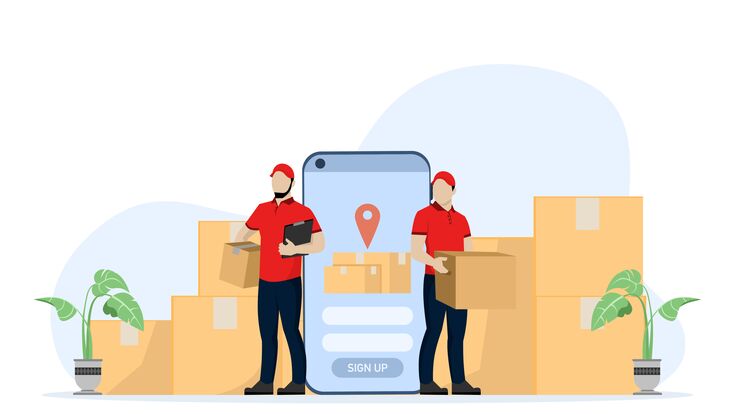Packaging waste : Project praxpack – making e-commerce more sustainable by reusable packaging

Over the years, e-commerce in Germany and Europe has been experiencing consistent growth. The products purchased in e-commerce are predominantly packed in single-use packaging, which is disposed of upon receipt of the goods.
Current studies on e-commerce (Zimmermann et al. 2021; Reitz 2021, 2020) show that private end consumers in Germany produced over 750,000 tonnes of paper, cardboard or paperboard packaging and over 50,000 tonnes of plastic packaging in 2018:
Stay connected. Subscribe to our newsletters!
Reusable packaging for e-commerce
Here the “praxPACK” project comes in: The aim of the project was to contribute to the establishment and distribution of reusable systems in e-commerce in order to achieve a substantial reduction of packaging-related resource consumption – and associated waste quantities. For this purpose, practical reuse concepts in e-commerce have been developed, tested, and evaluated environmentally as well as economically.
Based on the findings from our research, we can conclude that in principle reusable packaging can contribute significantly to the reduction of environmental impacts resulting from e-commerce. Depending on the specific case, reusable shipping packaging needs to reach a certain number of use cycles to result in lower emissions than the different single-use packaging option. By reducing the transport distances within the reusable packaging systems further improvements are possible. So far, however, major obstacles stand in the way of its wider use.
Related article: Innovative product cycles for a circular economy
As long as the reusable packaging is only used by a very limited number of online retailers, the amounts are too low to efficiently build up and operate a pool system. On the other hand, without a working pool system, it is unlikely the costs will significantly be reduced.
Obstacles for wider use of reusable packaging
First of all, the customers have to be taken along. While principally customers show a high demand for sustainable packaging solutions in e-commerce such as reusable packaging, this relates to the design of the return channels and the reduction of the economic and practical effort for the customers. Although an increase in the selection rate can be achieved by appropriately designing the front end of the online shop (active choice), this should go hand in hand with the required further developments to the return system.
The reduction of additional costs resulting from the return logistics will be a key factor in the uptake of reusable solutions in e-commerce. Pooling solutions in particular can potentially contribute to a reduction in costs in the future. To some extent, a hen-and-egg problem can be observed here. As long as the reusable packaging is only used by a very limited number of online retailers, the amounts are too low to efficiently build up and operate a pool system. On the other hand, without a working pool system, it is unlikely the costs will significantly be reduced.
Additional regulatory impulses could potentially stimulate a development of the situation here.
Publication bibliography
Reitz, Alexander (2020): Versandverpackungen: Bestandsaufnahme von Mengen und Materialdaten. Werkstattpapier, Projekt praxPACK. GVM. Available online at https://www.praxpack.de/filead..., checked on 9/23/2020.
Reitz, Alexander (2021): Verbrauch von Versandverpackungen in Deutschland. In Müll und Abfall (4). DOI: 10.37307/j.1863-9763.2021.04.04.
Zimmermann, Till (2022): Can reusable packaging contribute to make e-commerce more sustainable? An overview of challenges and potential selected results from the project "praxPACK" - two+ years of research in Germany. Ökopol. Hamburg. Available online at https://www.praxpack.de/filead..., checked on 1/24/2023.
Zimmermann, Till; Hauschke, Fynn; Memelink, Robin; Reitz, Alexander; Pelke, Nane; John, Rene et al. (2021): Die Ökologisierung des Onlinehandels. Neue Herausforderungen für die umweltpolitische Förderung eines nachhaltigen Konsums. Teilbericht II. Edited by Umweltbundesamt. Ökopol Institut für Ökologie und Politik. Dessau-Roßlau, Hamburg (TEXTE, 142/2021), checked on 3/22/2021.


